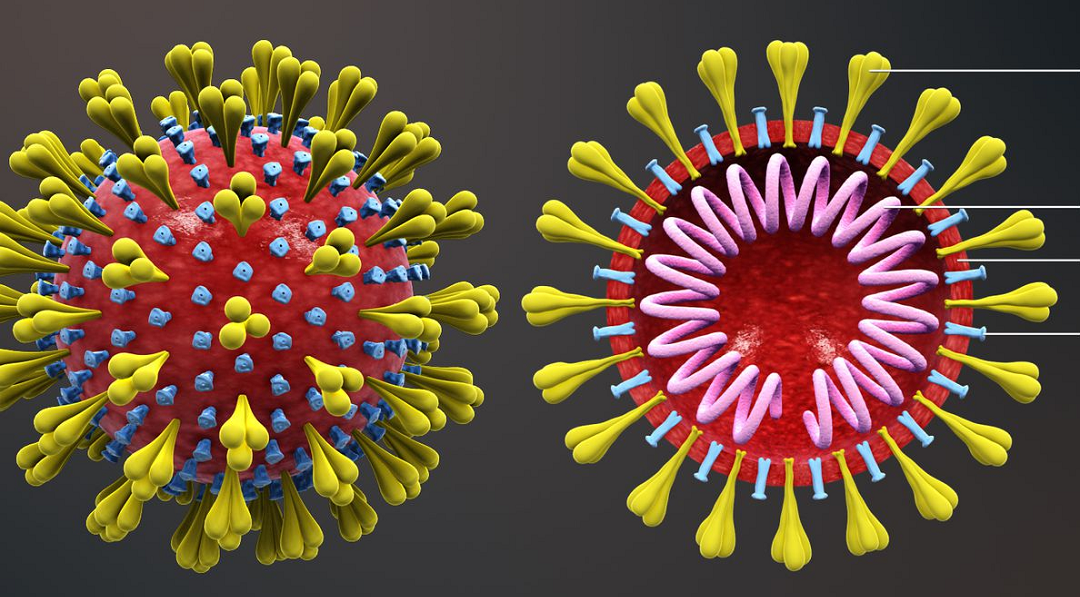Since the initial cases in Hubei of China, the number of confirmed Coronavirus (COVID-19) cases has grown rapidly and spread to countries across the world. And it is already declared a public health emergency. As a result, many countries have taken several measures from mass testing, travel and border restrictions, to lockdowns in a bid to contain the virus. However, the risks and threats of the virus are still growing around the world.
As countries across the world go into lockdown, many developing countries in particular face several problems of rapid response to this pandemic because of limited resources and weak public health system. In the countries where the pandemic is steadily progressing, there are emerging challenges of ensuring timely testing, treatment and robust contact tracing.
More worryingly, in most of the developing countries, many health workers do not have adequate access to personal protective equipment (PPE). Furthermore, there are limited hospital beds to accommodate the suspected and infected patients. Nonetheless, many health workers have shown an incredible commitment to provide health care services all the times in such difficult circumstances.
Because of the increasing risks and spread of the pandemic, most of the central hospitals and laboratory facilities have mounting pressure for timely tests and treatment for all. Undoubtedly, the health systems in most countries would be obviously further overwhelmed to respond to the increasing needs for testing and treatment services. As a matter of fact, most of the hospitals and other health facilities do not have adequate testing and treatment facilities, and physical infrastructure.
In response to increasing spread of the virus, the World Health Organization is playing an important role in coordinating the global response and it needs to continue further for rapid response. Moreover, it is also high time that the countries and donors harnessed the power of partnerships in the fight against this pandemic. More importantly, more investment is critically needed to recapitalize health and epidemiological systems in the countries where health care systems are still weak and fragmented.
Of course, the increasing threats of the virus has prompted many governments to introduce unprecedented measures to contain the pandemic. Some of the pragmatic hygiene measures include frequent hand-washing, sneezing or coughing practices, and the use of protective facemasks. However, people living in poor, overcrowded, urban areas are especially vulnerable because most of them do not have adequate water and basic sanitation. And they could not even self-isolate, and have limited access to essential health care services.
It is good to note that the national governments and health authorities are periodically updating the situation of COVID -19 and calling all citizens to stay safe and in self-isolation. The widespread messages and global updates of the pandemic are also available in the social media.
Things looked different as the pandemic started to spread in Europe and the USA. According to Lancet, Asian countries, including China, South Korea, Singapore, and Taiwan, have provided rapid and effective responses so far. This might be partly due to their recent experience with outbreaks of Middle East respiratory syndrome (MERS) in 2015 and the 2002–03 severe acute respiratory syndrome (SARS) epidemic.
Despite some concerted efforts of prevention, the pandemic is likely to cause large-scale loss of life and human suffering. It is a big public health crisis which will further jeopardize global health transition and health systems across the low and middle income countries. Unfortunately, despite government's commitments to universal health coverage, the inequalities in health status and unmet needs for health care still persist. In this context, one lingering question is: can the developing countries boost and optimize the capacity of health systems to respond to this pandemic?
There are still lack of trained health workers in most developing countries. During any public health emergency or pandemic, health workers have to face additional pressure to provide timely health care services for people who are most affected and vulnerable. One of the serious concerns is to protect the health of health workers. That is why, ensuring availability of adequate face masks and other essential protective equipment for all health workers is critical to avoid the risk of further infections.
The consequences of this pandemic on our lives and communities are understandably worse than ever. Therefore, containment and mitigation strategies are key public health interventions to minimize the adverse consequences of the pandemic across the world. As we continue to fight this pandemic, the existing efforts to contain the virus should be further intensified to boost the health care systems and stabilize the economies. Additionally, the government urgently needs to plan stronger and more coordinated multi-sector response to mitigate its wider socio-economic impacts on individuals, families and communities.
Since the global health is in transition, the first and foremost priority of the national governments is to invest more on building resilient and sustainable systems for health. One of the important priorities for health systems confronted with the spread of the pandemic is to protect the health rights of all people. This is only possible if the rapid diagnosis, testing and appropriate health care services are readily accessible, available and affordable in a safe environment at all levels.
To sum up, there are critical needs to mitigate the consequences of the pandemic across the world. Despite rapid population growth, increasing trends of migration and urbanization, there are still challenges and opportunities for achieving gains in health, particularly in the developing countries where poverty, gender inequality and poor health systems have been persistent over the decades. Therefore, a multi-pronged approach with strong containment and mitigation actions, is urgently needed to effectively tackle the pandemic..
(Bhandari is senior doctoral research fellow in global health and health systems and can be reached at talk2jhabindra@gmail.com)

